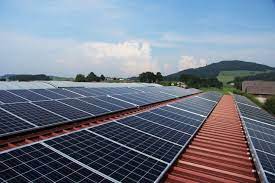Last May 2021, the Secretary of State for the Economy and Business Support approved the Code of Good Practice for the renegotiation of financing guaranteed by public entities (ICO, CESCE or CERSA) on the occasion of the Covid-19 crisis.

Thus, companies that received aid in the form of bank financing guaranteed by these public entities will have the possibility to apply for one of the 3 measures made available to them:
- Extension of ICO loans: for two more years, so that the maximum term for loans of less than €1.8 million will be 10 years, and for loans of more than €1.8 million it will be 8 years. This extension will be mandatory for banks in cases of a decrease in sales of more than 30% in the period 2020 compared to 2019, and only optional if the decrease in turnover is less.
- Conversion of the financing into a shareholder loan, with maintenance of the public guarantee: in this case, a decrease in turnover of more than 30% is mandatory and the company must also have recorded losses in 2020. The refinancing of the guaranteed debt will be binding for all banks, when more than 50% of the guaranteed nominal amount supports it.
- As a measure of last resort, the reduction (write-down) of the principal of the financing by means of transfers by the State.
All these modalities will be implemented in the framework of an agreement to renegotiate the debt of all banks, making their best effort to include both the secured and unsecured part, generated between 3/17/20 and 3/12/21.
One or more measures may be implemented at the same time or successively. In order to coordinate the whole process between the various financial institutions, it has been stipulated that the bank with the highest risk ICO will be the coordinator of all the banks, and the company must contact it. Tranches 1 and 2 must be communicated to ICO before 12/1/21, and tranche 3 before 12/1/22. Debt secured by collateral or guarantors is excluded from these coordination rules.
Another very important point to bear in mind is that, if any of these three modalities are used, the banks undertake to maintain the working capital lines until 12/31/22. And as far as the refinancing of the non-guaranteed debt is concerned, the unanimity of all the financial institutions will be necessary.
For more details on the eligibility criteria and how the whole process works, please contact us. At Altria Corpo we can handle all these procedures and negotiations with financial institutions, as well as look for all kinds of additional financing solutions from among the more than 100 alternative financing providers to which we can provide access.


